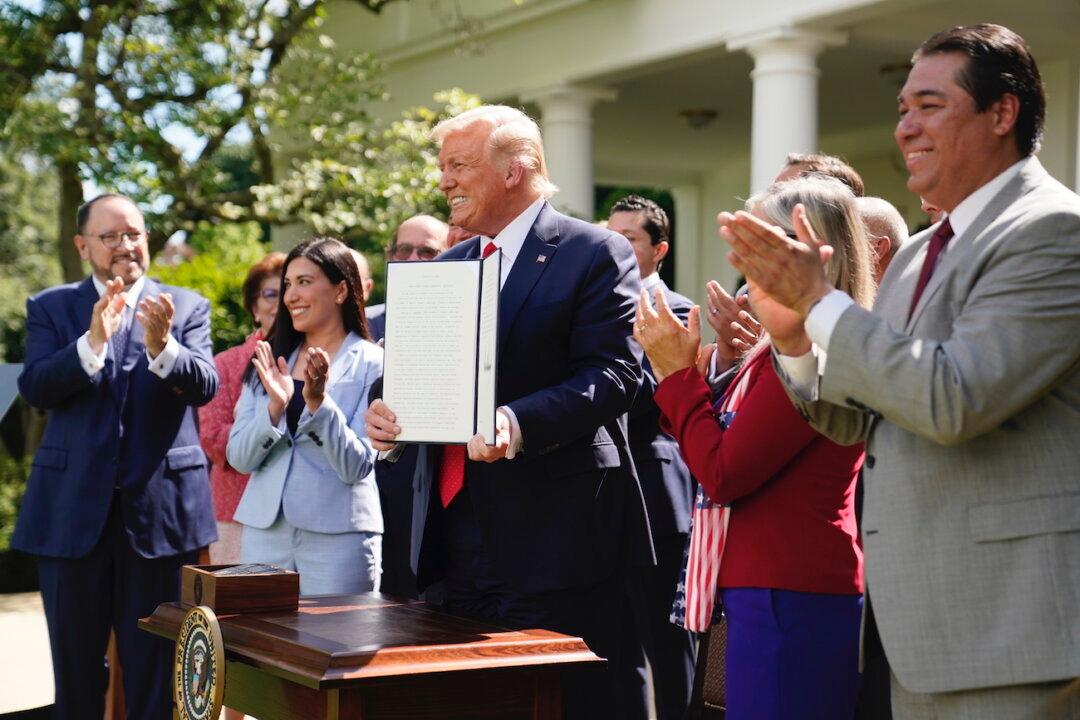President Donald Trump on Thursday signed an executive order that seeks to improve Hispanic Americans’ access to educational and economic opportunities.
The order establishes the White House Hispanic Prosperity Initiative, which will be housed in the Department of Education. The initiative’s mission is to improve access to educational and economic opportunities for Hispanic Americans, with one such way being to encourage private-sector initiatives and fostering public-private partnerships.




